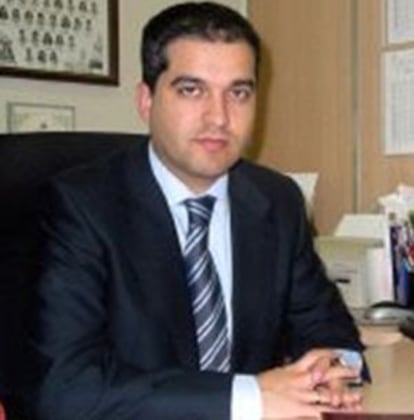The bogus doctor who fooled a regional government
Destination of 600,000-euro grant for care homes is unclear

Manuel Medina's life was going swimmingly in 2006, when he received a young businessman's award for his creation of a company managing homes for senior citizens and mentally ill people in Albacete. A year later he secured a 600,000-euro grant from the regional government of Castilla-La Mancha. His company, Instituto Avanzado de Ciencias Gerontológicas (IACG), directly or indirectly managed 465 places across seven centers and employed 100 people. But something went wrong.
On February 26, Medina was sentenced to 32 months in prison for unauthorized practice of a profession and falsification of public documents. Despite never finishing his degree, Medina posed as a doctor, signing death certificates, prescribing medicines and advising other medical professionals at the centers. But suspicions over his credentials were growing as quickly as his company. "There were certain deficiencies in his arguments and medical explanations," says a businessman from the sector who was close to signing an agreement with IACG.
"We never asked directly, but in the center and in Albacete there were people who said he wasn't a doctor," says an ex-employee who worked with Medina as a nurse for eight years.
In October 2007, the administrator of the Álamos de Santa Grena center, which Medina managed between 2005 and 2007, decided to make her own inquiries. She discovered in the Medical College of Albacete that Medina had been using the registration number of his father, a pediatrician. The Medical College alerted the police and Medina admitted using his father's registration.
The Socialists, who were in power in Castilla-La Mancha at the time, defended awarding a grant to a person with a judicial investigation hanging over his head by stating that it was given to the firm, not Medina.
"The company presented all the necessary requisites," says Javier Pérez, director general of the Senior Citizens and Disabled Persons department at the time. "The grant could have been awarded if he was a doctor, a lawyer or a professor." Pérez adds that the Altozano center where the agreement was signed enjoyed "optimum" services and that no complaints had been made.
The Popular Party won power in Castilla-La Mancha in 2011 but did not revoke the grant until this January. Even then it was not because of the judicial proceedings but due to the "constant absence of the services promised," said the regional administration.
Employees at the Altozano center have not been paid in 16 months. At the Gerialba center, also run by IACG, workers have not seen a paycheck in five months. Various employees state that delays and non-payments have been the norm for the past three years. IACG has run up debts of two million euros and there is not a supplier in Albacete province that will give food to the centers because of the continued non-payment of invoices.
Despite this, Medina exhorted his staff to carry on, saying it would all be resolved.
"He was a snake charmer; he had the gift of the gab," says a worker at the Altozano center. The families who have relatives in IACG's establishments do not know what became of their 1,900-euro monthly payments. Neither is it known where the regional government grant ended up — in IACG's annual accounts for 2008, 2009 and 2010, submitted to the Mercantile Registry, there is no mention of it.
Tu suscripción se está usando en otro dispositivo
¿Quieres añadir otro usuario a tu suscripción?
Si continúas leyendo en este dispositivo, no se podrá leer en el otro.
FlechaTu suscripción se está usando en otro dispositivo y solo puedes acceder a EL PAÍS desde un dispositivo a la vez.
Si quieres compartir tu cuenta, cambia tu suscripción a la modalidad Premium, así podrás añadir otro usuario. Cada uno accederá con su propia cuenta de email, lo que os permitirá personalizar vuestra experiencia en EL PAÍS.
¿Tienes una suscripción de empresa? Accede aquí para contratar más cuentas.
En el caso de no saber quién está usando tu cuenta, te recomendamos cambiar tu contraseña aquí.
Si decides continuar compartiendo tu cuenta, este mensaje se mostrará en tu dispositivo y en el de la otra persona que está usando tu cuenta de forma indefinida, afectando a tu experiencia de lectura. Puedes consultar aquí los términos y condiciones de la suscripción digital.








































